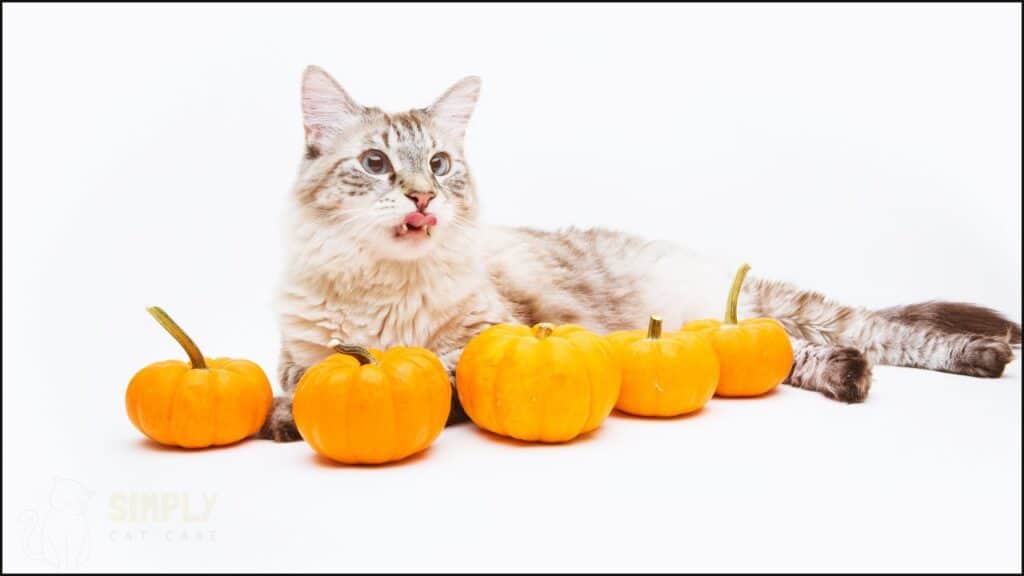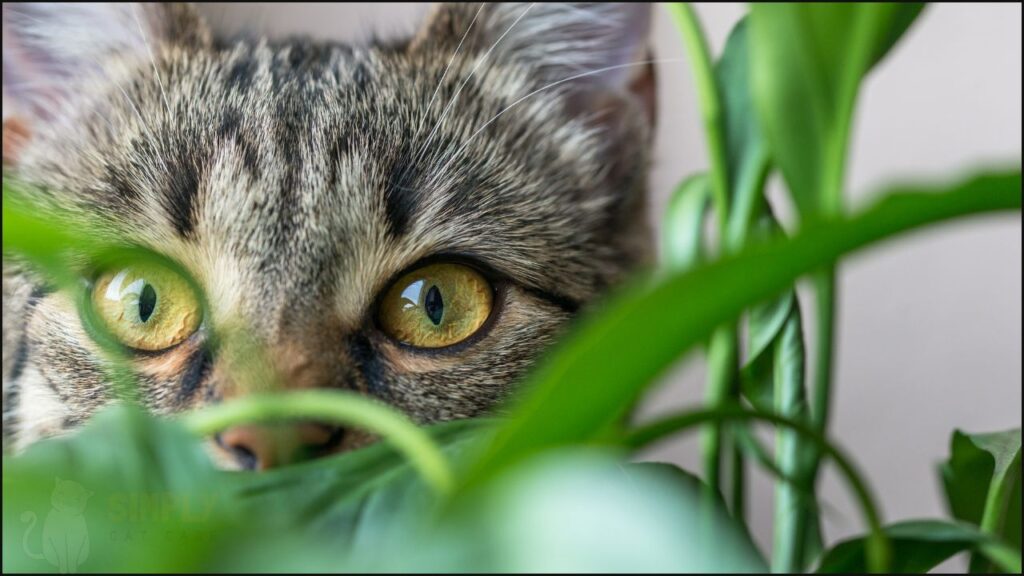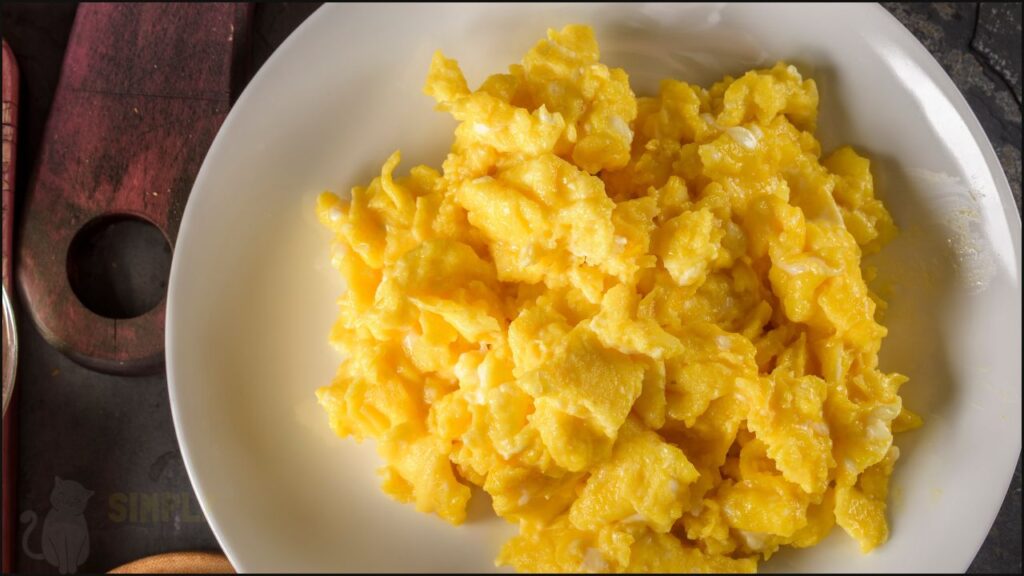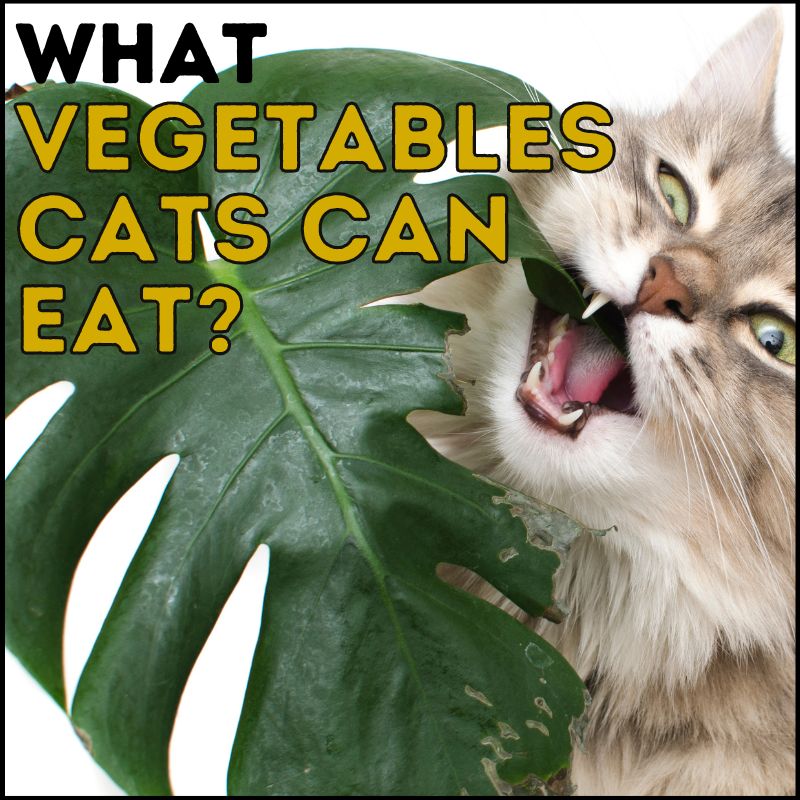What vegetables can cats eat?
Here’s a few:
- Pumpkin
- Corn
- Potato
- Sweet potato
- Beet pulp
- Miscanthus grass
Here is a list of vegetables cats can’t eat:
- Onion
- Leek
- Garlic
- Chives
- Avocado
- Spinach
- Broccoli
Cats are carnivores. They have bodies adapted to eating prey.
Vegetables of the allium family include onion, leek, garlic, and chives. All of these can cause vomiting and diarrhea in amounts as little as 5 mg/kg in cats.
Other things like cooked potato are safe. However, these foods are high in carbohydrate, which cats do not need in their diet.
A high carb diet can lead to digestive issues, and food rejection.
Some vegetables are high in vitamin C and oxalate, which increase urinary stone risk (e.g. spinach).
In general, it’s best to limit vegetables in your cats diet. Stick to meats, organs, and bones.
If there’s a specific vegetable you want to try, discuss the option with your vet.
In the rest of this article I’ll cover some frequently asked questions on the topic of vegetables in a cats diet.
I recommend seeking the advice of a vet for any further questions. The advice in this article is not intended as medical advice.
What Vegetables Can Cats Eat?
Here’s some vegetables safe for cats:
- Pumpkin
- Corn
- Potato
- Sweet potato
- Beet pulp
- Miscanthus grass
Cats do not need vegetables in the diet.
As carnivores, they can get all their nutrients from prey.
Most veggies are high in carbs, which cats don’t need any of. It’s best to keep veggie intake low in your cats diet.
Learn More:

Frequently Asked Questions
What Vegetables Are Good for Cats?
None.
Cats don’t need any vegetables in their diet.
Some vegetables may benefit cats for health. For example, small amounts of miscanthus grass and beet pulp can help clear hairballs and constipation.

Is It Okay for Cats to Eat Vegetables Everyday?
Maybe.
In small amounts, some vegetables are safe for your cat to eat, but many aren’t. There’s no point having them in your cats diet.
Whilst they’re considered boons to a humans health, they don’t offer nutritional benefit to carnivorous cats.
Can Cats Eat All Fruits and Vegetables?
No.
A diet of only fruits and vegetables doesn’t give cats enough nutrition, in particular protein.
Cats have no taste for sweetness, and therefore do not want to eat any fruit. They also don’t need any vitamin C (high in fruit) and this nutrient increases kidney stone risk in cats.
Should I Add Vegetables to My Cats Food?
No.
All cats need is animal products in their diet. Vegetables offer no additional benefits.
Is Sweet Potato Good for Cats?
No.
Sweet potato is high in carbohydrate, which cats don’t need or enjoy. It’s also high in beta carotene, which cats can’t convert into ‘active’ Vitamin A.
It’s also low protein, which isn’t going to help cats since they have a higher protein requirement than humans.
Can Cats Eat Scrambled Eggs?
Yes.
Eggs are a high protein food that benefit cats. Do not add salt, pepper, or any other seasoning if you want to give your cat a plate of eggs.

Why Can’t Cats Eat Carrots?
They can.
There’s just not much reason to. Carrots don’t offer much in the way of nutrition to cats.
They can’t convert the beta carotene to active form Vitamin A.
Is Canned Tuna Ok for Cats?
In small amounts.
Canned tuna is high in mercury, a heavy metal. Excess mercury leads to toxicity.
Humans are advised to limit to 3 tins per week. Cats, being much smaller, can tolerate amounts only a fraction of this.
Learn more:
Are Boiled Vegetables Good for Cats?
No.
Boiling vegetables doesn’t make them better for cats, although it does improve digestion for starchy vegetables (e.g. potato).
What Human Food Can Cats Eat Daily?
Plain cooked meat.
However, cats need a balanced diet. A diet of ‘all meat’ will cause calcium deficiency, leading to depression.
Cats need a balanced commercial cat food diet.
Do Cats Need Vegetables
No.
Cats can survive and thrive with a diet containing all animal products. Vegetables offer no benefit to cats.
Conclusion
Cats are carnivores.
Whilst humans consider vegetables healthful, the reality is cats don’t need them.
The easiest solution is just not to offer vegetables to cats. If you do, make sure it’s not something toxic, especially vegetables from the allium family (e.g. onion and garlic).
Read more:

